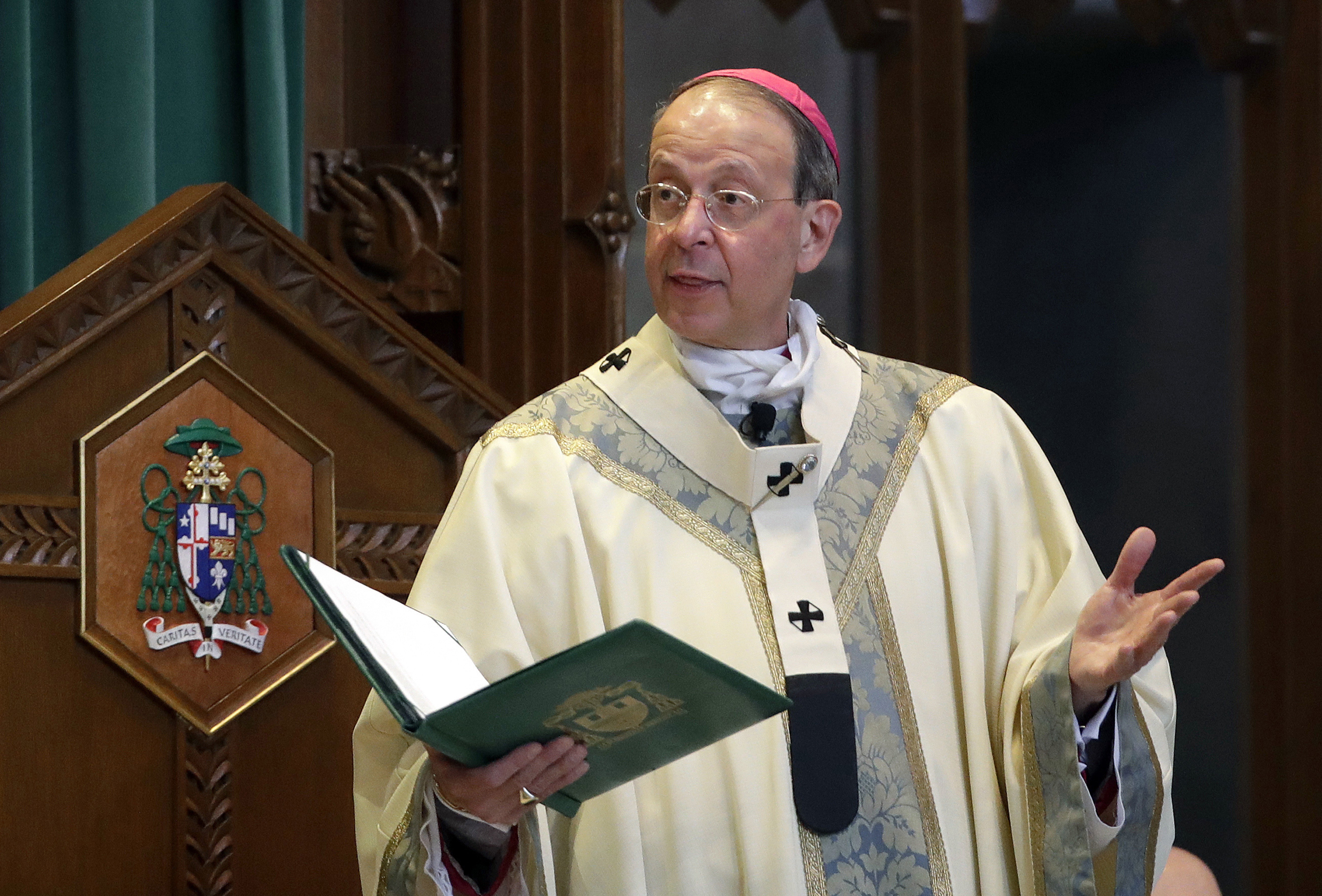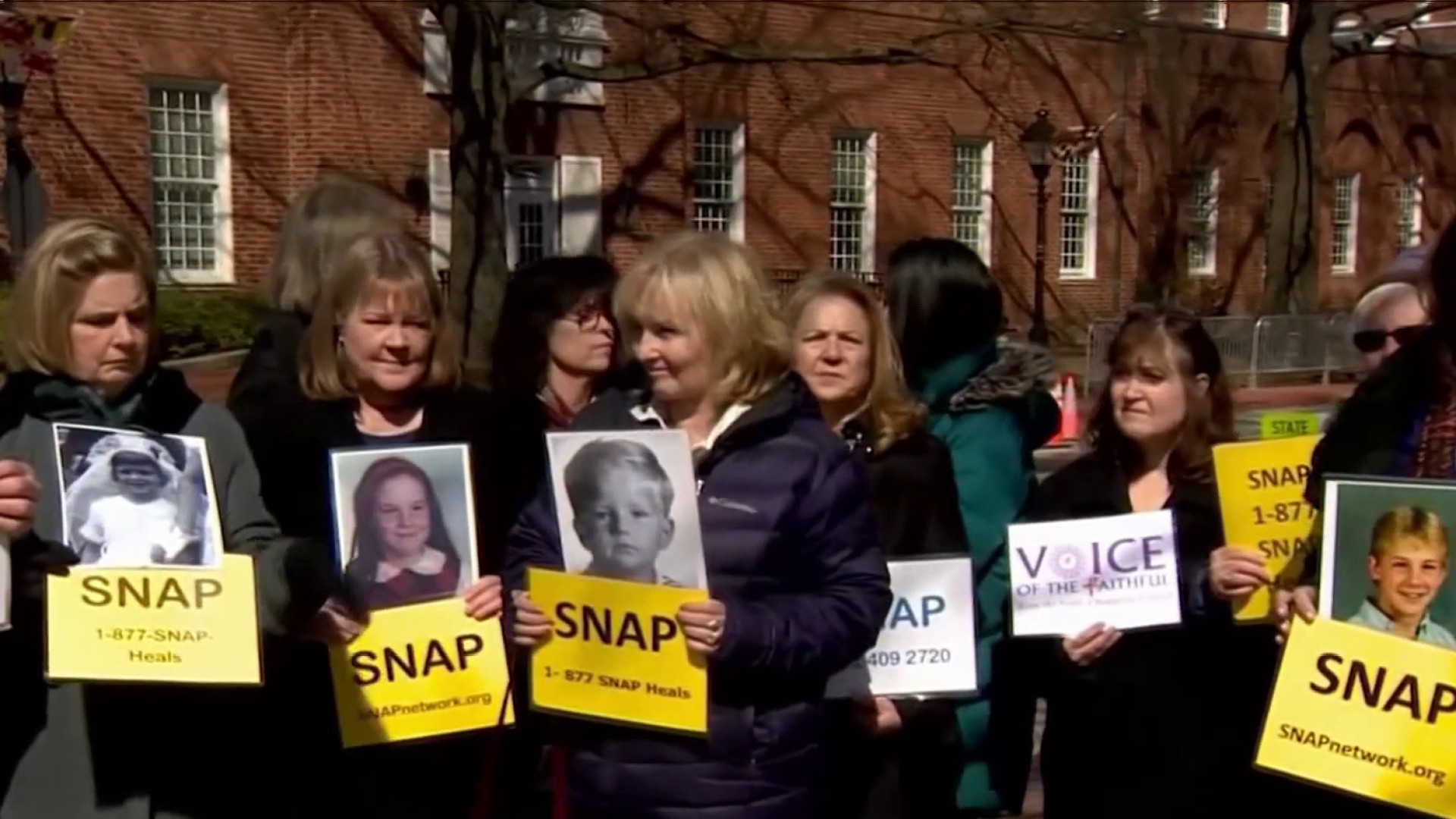Attorneys for the Archdiocese of Baltimore and abuse survivors are expected back in court next week as the church’s bankruptcy proceedings unfold. Meanwhile, survivors say they’re eager for answers about how they’ll find justice amid the bankruptcy process.
The archdiocese filed for Chapter 11 bankruptcy in late September, just days before the start of a new Maryland law that allows survivors of child sex abuse to sue their perpetrators or responsible parties, no matter how long ago the abuse took place. But the church’s move, filed in federal court, immediately halted church abuse survivors from filing civil claims against both the church and its parishes in state courts.
The bankruptcy proceeding is still in the early stages, but so far, the court has appointed what's called a creditors committee made up of seven survivors and their attorneys that will serve as representatives for all survivors expected to come forward in coming months. Those survivors, referred to as creditors in the proceedings, will ultimately vote on a settlement with the church. That committee has also hired local and national firms, Tydings & Rosenberg LLP and Stinson, respectively, to represent the group, subject to court approval.
But those are just a few crucial steps in a long process. Here are four of the big issues the News4 I-Team is watching as the process unfolds.
1. How long survivors will have to bring claims against the church
Maryland law allows survivors to sue no matter when abuse took place, but bankruptcy is a federal process that trumps state law and comes with its own deadlines, said Temple Law School professor Jonathan Lipson.
“Maryland has said, ‘Hey, we've extended the statute of limitations, come forward and assert your claims against the diocese.’ And what the diocese is now saying is, ‘Yeah, do that, but you have to do it through the bankruptcy. If you don't do it through the bankruptcy, you will be forever barred from ever doing it in the future.’"
One exception, Lipson explained, is whether the church and survivors agree to set aside a pot of money for abuse survivors who may not be ready to come forward now.
2. The value of the church's assets
The Archdiocese of Baltimore is the oldest in the country, which Penn State bankruptcy law professor Marie Reilly said could mean it obtained interests in some of its property during pre-Colonial times.
Reilly, who has tracked these kinds of bankruptcies across the country, said now the church will be required to disclose what it currently owns, as well as significant property transfers that occurred during the past two years.
But since some survivors have accused churches of hiding assets during similar proceedings, she said they can ask for records that go even further back.
“They will have unfettered and complete access to the archdiocese’s financial and property records,” Reilly said. “And if the committee of unsecured creditors decides that that's what they want to do – to challenge these property transfers – they're going to do it.”
A spokesman for the Baltimore Archdiocese acknowledged to News4 that, roughly a dozen years ago, the archdiocese transferred property deeds to parish corporations as part of an effort to “conform ownership of parish property under civil law with the ownership of property under Canon or Church law.” Those records, he noted, are public.
3. Whether survivors will be able to tell their stories in court
Many survivors have told News4 they want the chance to tell their story during the court proceedings.
Attorney Gordon Novod represents a Maryland woman who planned to file civil suits against the diocese and a local parish but was unable to do so once the bankruptcy papers were filed.
“Every survivor would like to see financial compensation [and] every survivor would like to see or have the ability to tell their story,” Novod said. “A lot of these survivors have finally gotten to the point in their lives where they’re able to reconcile this.”
4. Whether parishes will receive what’s called third party releases in the settlement, which shields them from being sued individually
Reilly said parishes typically receive these releases in exchange for contributing to the pot of money paid out to survivors.
"What's happened in the Catholic cases is parishes who have been sued by sex abuse claimants contribute to the pot, but all parishes contribute to the pot, even ones that never had an abusive priest,” she said.
“They do it in exchange for a release and also to assist the diocese to kind of get this chapter closed and move on into the future," she added.
The Supreme Court is expected to take up the issue of third-party releases in a case involving Purdue Pharma later this year and could decide whether a bankruptcy court can allow them even if creditors object.
The spokesman for the diocese indicated releases will likely be part of the bankruptcy settlement, as they have been in other diocesan bankruptcy proceedings.
The parties are expected back in federal bankruptcy court next week. Soon, they're anticipated to discuss the process for notifying survivors about how to bring a claim.
Reported by Tracee Wilkins, produced by Katie Leslie, and shot and edited by Jeff Piper.
News4 sends breaking news stories by email. Go here to sign up to get breaking news alerts in your inbox.



